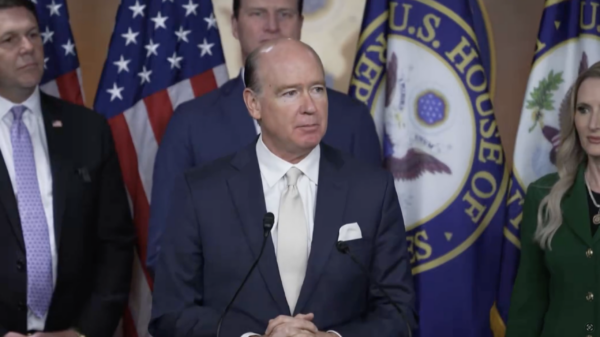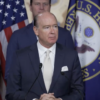A report released Thursday found that Alabama healthcare providers will be among the most negatively impacted nationwide should certain Affordable Care Act premiums expire.
The report conducted by the Robert Wood Johnson Foundation projects billions of dollars in lost revenues for healthcare providers alongside uncompensated care spikes if Congress allows ACA enhanced premium tax credits to expire at the end of 2025.
Enhanced premium tax credits, or ePTCs, are federal subsidies for health insurance enacted by the American Rescue Plan Act and extended by the Inflation Reduction Act.
The credits have been administered yearly since 2021 through the ACA’s Health Insurance Marketplace; however, they are currently set to expire at the end of 2025.
RWJF’s report, prepared in collaboration with researchers at the economic and social policy think tank, the Urban Institute, found that if Congress allows ePTCs to expire, hospitals, physicians and other providers will face roughly $32.1 billion in lost revenue nationwide in 2026.
“The negative effects of allowing these tax credits to expire couldn’t be more stark,” said RWJF Senior Policy Advisor Katherine Hempstead. “Millions of people will lose coverage, and providers will face the one-two punch of losing revenue and increasing uncompensated care.”
“Healthcare institutions are often the economic engines of entire communities. If the credits expire, the ripple effects will be felt for years to come,” Hempstead added.
The report found that uncompensated care, or care healthcare providers will be forced to pay for without reimbursement, will spike by $7.7 billion in 2026, increasing the amount of uncompensated care demand nationwide by 11.6 percent.
Uncompensated care increases would include a $2.2 billion increase in uncompensated care in hospitals, a $1 billion increase for physician offices, $3.1 billion for other services and $1.5 billion for prescription drugs.
The report found that the loss of ePTCs in Alabama would bring about a 2.8 percent total decrease in healthcare spending for nonelderly patients by insurers and households, with hospitals expected to see a 3.5 percent decrease. The overall spending decrease would constitute a loss of $939 million in revenue for healthcare providers across the state.
If the premiums aren’t extended by Congress, RWJF also found that Alabama would see an 18.3 percent increase in demand for uncompensated care from nonelderly patients statewide, and an 18.8 percent increase for hospitals.
“Declines in health care spending would be more pronounced in states that have not expanded Medicaid, communities in the South, and rural communities,” the report reads. “Because lower spending on health care services means lower revenue for health care providers and fewer services rendered, the resulting decline in revenue could have adverse consequences, particularly for already financially at-risk hospitals and the communities they serve.”
The report found that ten of the 11 states that would be hit by the largest decreases in total healthcare spending have not expanded Medicaid and are concentrated in the South. Meanwhile, nine of the 15 states projected to be most impacted by uncompensated care increases are non-expansion states. Alabama ranks in the top ten most impacted states in both categories.
Research conducted using the Urban Institute’s Health Insurance Policy Simulation Model also projected that, without ePTCs, net premiums in ACA’s Marketplace would “significantly increase.”
Researchers found that 7.3 million fewer people would receive subsidized coverage in 2026, resulting in 4.8 million more nonelderly adults becoming uninsured compared to 2025.
“If these subsidies expire, it will be important for federal, state, and local policymakers to consider the potential adverse effects on healthcare access and affordability, as well as revenue losses for providers of all types,” said Urban Institute Principal Research Associate Fred Blavin.





















































